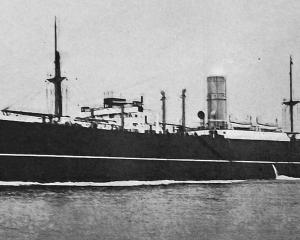Dunedin is growing. However you measure growth, the city ticks the box: GDP, new jobs, property prices, population, visitor numbers.
It's a relatively novel scenario for modern Dunedin and one the city must adapt to rapidly if it wants to maintain momentum. With new growth comes proposals for new development, not all of which neatly fit into the city's district plan.
How the Dunedin City Council processes those development proposals affects everyone in the city.
Several recent attempts at development have had their journey through the city's consent processes publicly reported. Last year council planners suggested a proposed 3300sq m Countdown supermarket in Mosgiel have its operating hours restricted to 9am-6pm.
The store, planned for the long-vacant St Mary's Primary School site on Gordon Rd, eventually had consent granted with conditions. Countdown's parent company Progressive Enterprises
appealed some of those conditions and last week it and the council finally reached an agreement.
A proposed Foodstuffs' Raeward Fresh store in South Dunedin's industrial zone came before the council's hearings committee last month. That proposal included a multimillion-dollar renovation of a decaying industrial building, the opening of a new cafe, a new fresh food market option for Dunedin consumers and the provision of some 40 new jobs.
A council planner recommended the development not go ahead as the store did not fit the area's zoning guidelines. Other retail premises not in keeping with those zoning rules, including hardware and garden supplies stores sporting cafes and high traffic movements, already operate from the same area and zone. After a lengthy hearing council planners reiterated their view the proposal be declined.
The council's hearings committee is considering the proposal in light of more information, and a consent decision is imminent.
This month, a council planner recommended a proposed 25-apartment retirement complex on the site of the former Shiel Hill Tavern be declined. That recommendation did not change following a hearings committee meeting, leaving the developer suggesting many of the factors contributing to objections raised would apply if the site was reopened as a tavern or restaurant.
It is important to understand the role of council planners in the consenting process. They are not there to make the final decision on behalf of the city - the hearings committee does that. Council planners act on behalf of the city's district plan.
It would be concerning, however, if developers looking to invest in Dunedin were finding it more difficult here than in other cities. Every consent hearing comes at a cost to developers. Lawyers, planning experts, engineers and more are often needed, at considerable expense, to argue why their proposed development should proceed.
While Dunedin is growing, there are still a significant number of unemployed.
With a tranche of refugees soon to arrive, and desperate for a fresh, positive start, an increasing number of jobs is more important than ever. For unemployed people, watching council planners demanding the developers promising new work jump through seemingly unnecessary hoops must be frustrating.
It is unfair to scorn the planners who are only doing their jobs. Dunedin has something no other city in New Zealand has, with its highly centralised city heart. While most of the country has turned to urban sprawl and suburban shopping malls, Dunedin has stayed true to its point of difference.
That disciplined approach is a victory for the city's council and planners.
It is necessary the council holds the keys to the city's future spread and stipulates conditions ensuring developments benefit, not detract, from Dunedin. But those keys should not be held too tightly.











